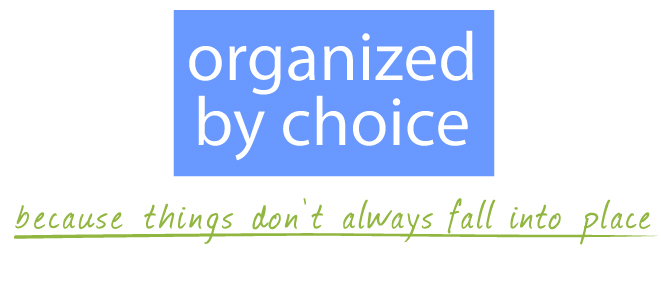I loved tucking in my kids when they were young. When they were older, I remember thinking, “When and how did it stop?” It’s not like you decide and say, “OK, this is the last week I’ll be tucking you in.” It just sort of happens.
Becoming disorganized can be like that too. It’s not an intentional choice. “OK, this is the week I’m going to stop putting things away.” Or, “As of today I’m going to start buying more than I need and save everything.” Yet, it happens. Many of my clients begin our first encounter with, “I used to be organized!”
I remember a conversation with a woman who had cleaned out her deceased grandmother’s home. There were signs of hoarding as she sorted through layers and layers of stuff. Recalling the process, she said, “When I got to the bottom layer of clutter, I noticed it was from the year my grandmother was forced to retire.” That is not insignificant. Transitions, good and bad, are often catalysts to disorganization.
Some people stop being organized when physical challenges arise—surgery, cancer, disease. For others, it’s triggered by mental or emotional health issues—brain injury, memory loss, anxiety, grief, or depression. However, it’s not only negative circumstances that introduce disorganization. Having kids, starting a new job, or moving to a new house can create chaos as well.
So, we know what stops organization. How do you restart? Begin the process by looking back to a time when you were more organized. Chances are you had some of these Timely Tips in place.
Timely Tips - from a time when you were more organized
1. There was less stuff. Due to shopping therapy or additional people in the home, there might be way more stuff. Less is still more when it comes to a peaceful and productive environment. Scale back to what you need, use, and love. Donate the rest!
2. You had a home for everything. That’s a lot easier task when you have less stuff (see tip #1). Make sure you’re putting things you use most often in accessible places, especially if your challenged physically. Store like things together and label shelves, bins, etc.
3. You put things away. If you don't have homes for things, you can't put them away (see tip #2). When you’re stressed and hurried it’s easy to let things slide. The problem is, that two-minute task of putting the dishes in the dishwasher or hanging up your clothes becomes an overwhelming project when left undone for several days or weeks. So, if it takes less than two minutes, do it now!
4. You had routines. At work there’s a system for processing paperwork. At home it’s often a different story. Even in retirement, more time doesn’t always translate into better organization, but routines do. Create routines to support the daily tasks that are necessary for maintaining organization.
Depending on the severity of the circumstances that stopped you from being organized, you need to give yourself grace in the process of getting reorganized. You may need help, even to do things you were at one time completely capable of. Left unchecked, clutter and chaos will grow along with your stress and anxiety. Becoming disorganized doesn’t happen by choice, but getting organized is always a choice. You CAN get ORGANIZED BY CHOICE and regain peace and productivity! If I can be of service, give me a call at 559-871-3314.

